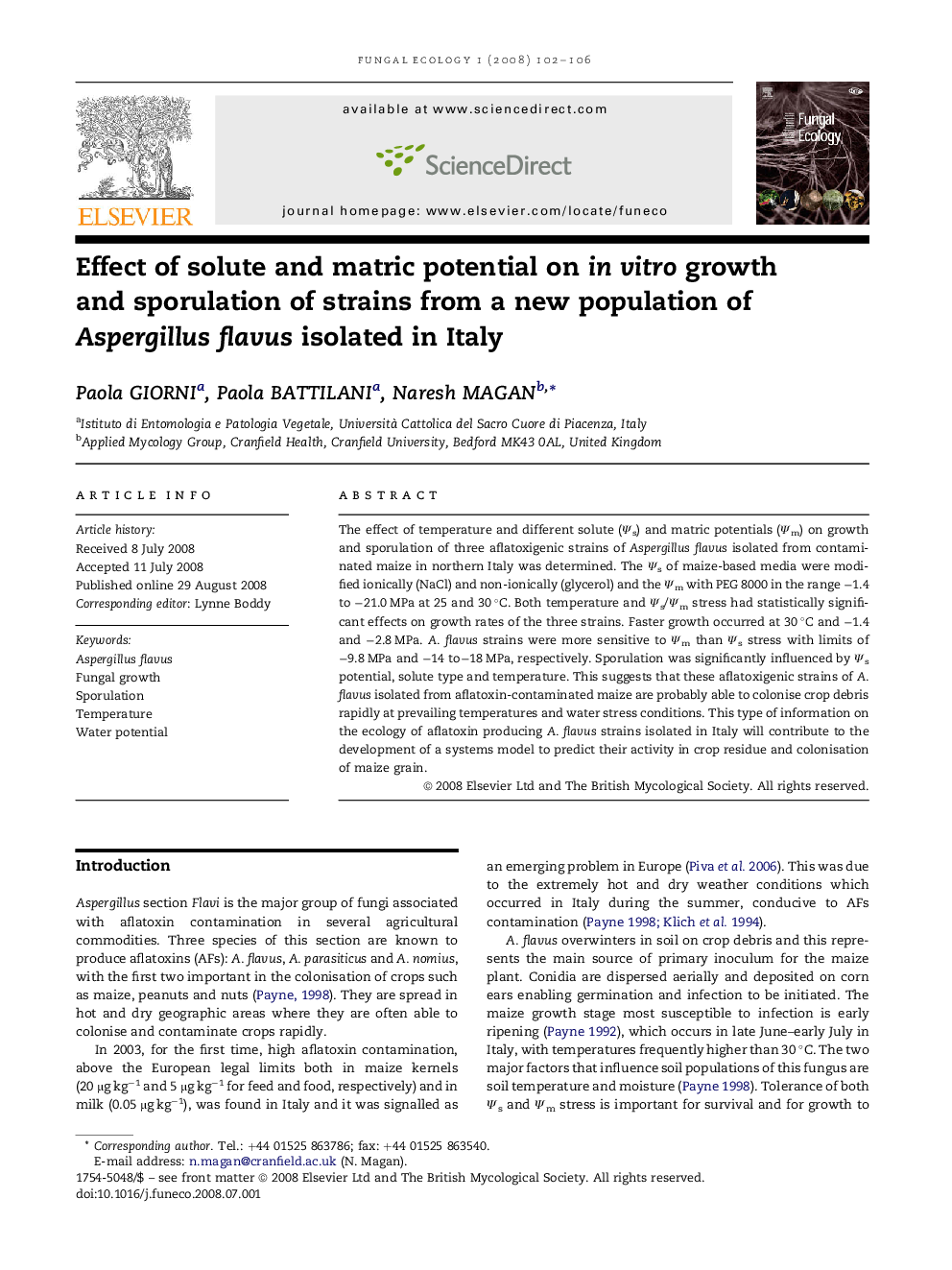| Article ID | Journal | Published Year | Pages | File Type |
|---|---|---|---|---|
| 2054182 | Fungal Ecology | 2008 | 5 Pages |
The effect of temperature and different solute (Ψs) and matric potentials (Ψm) on growth and sporulation of three aflatoxigenic strains of Aspergillus flavus isolated from contaminated maize in northern Italy was determined. The Ψs of maize-based media were modified ionically (NaCl) and non-ionically (glycerol) and the Ψm with PEG 8000 in the range −1.4 to −21.0 MPa at 25 and 30 °C. Both temperature and Ψs/Ψm stress had statistically significant effects on growth rates of the three strains. Faster growth occurred at 30 °C and −1.4 and −2.8 MPa. A. flavus strains were more sensitive to Ψm than Ψs stress with limits of −9.8 MPa and −14 to−18 MPa, respectively. Sporulation was significantly influenced by Ψs potential, solute type and temperature. This suggests that these aflatoxigenic strains of A. flavus isolated from aflatoxin-contaminated maize are probably able to colonise crop debris rapidly at prevailing temperatures and water stress conditions. This type of information on the ecology of aflatoxin producing A. flavus strains isolated in Italy will contribute to the development of a systems model to predict their activity in crop residue and colonisation of maize grain.
